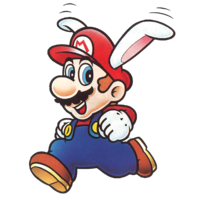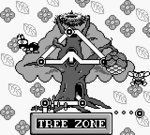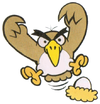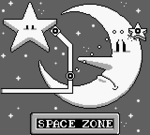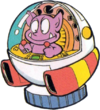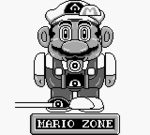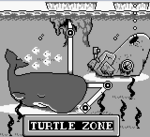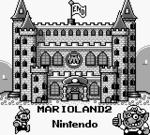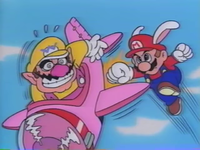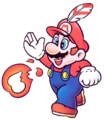Super Mario Land 2: 6 Golden Coins: Difference between revisions
(Replaced content with ".") |
m (Revert consecutive edits by Builderman0317 (talk) is not classified as an enemy. Therefore, I will move this image to its appropriate section.) |
||
| Line 1: | Line 1: | ||
. | {{italic title}} | ||
{{Infobox | |||
|image=[[File:Supermarioland2logo.jpg|250px]]<br>American boxart. | |||
|developer=[[Nintendo Research & Development 1|Nintendo R&D 1]] | |||
|publisher=[[Nintendo]] | |||
|released='''Game Boy:'''<br>{{releasedate|Japan|October 21, 1992|USA|November 1, 1992|Europe|January 28, 1993}} '''Virtual Console (3DS):'''<br>{{releasedate|USA|September 29, 2011|Europe|September 29, 2011|Australia|September 29, 2011|Japan|October 12, 2011}} | |||
|genre=2D Platformer | |||
|modes=1 player | |||
|ratings={{ratings|esrb=E}} | |||
|platforms=[[Game Boy]], [[Virtual Console]] ([[Nintendo 3DS]]) | |||
|media={{container|gb=1|3dsdl=1}} | |||
|input={{input|gb=1|3ds=1}} | |||
}} | |||
'''''Super Mario Land 2: 6 Golden Coins''''' is a platforming game for the [[Game Boy]] released in 1992 and later for the [[Nintendo 3DS]]'s [[Virtual Console]] in 2011. It is the sequel to ''[[Super Mario Land]]'' and also marks the debut of [[Wario]]. Like its predecessor, it received a [[Player's Choice]] and was produced by the late [[Gunpei Yokoi]] rather than the [[Mario (series)|''Mario'']] series creator [[Shigeru Miyamoto]], who was not involved in the development of this game. | |||
==Story== | |||
'''Story from the instruction booklet'''<ref>''Super Mario Land 2: 6 Golden Coins'' instruction booklet, pages 3-4</ref> | |||
<blockquote> | |||
<b>DANGER! DANGER!</b><br>While I was away crusading against<br>the mystery alien Tatanga in Sarasa<br>Land, an evil creep took over my<br>castle and put the people of Mario<br>Land under his control with a magic<br>spell. The intruder goes by the name<br>of Wario. He has been jealous of my<br>popularity ever since we were boys,<br>and has tried to steal my castle<br>many times. It seems he has<br>succeeded this time.<br>Wario has scattered the 6 Golden<br>Coins from my castle all over<br>Mario Land. These Golden Coins are guarded by those under Wario's<br>spell. Without these coins, we can't get into the castle to deal with<br>Wario. | |||
We must collect the 6 coins, attack Wario in the castle, and save<br>everybody!<br><b><i>IT'S TIME TO SET OUT ON OUR MISSION!!</i></b><br>★The 6 Golden Coins are the coins needed to open the<br>gate of Mario's castle. | |||
</blockquote> | |||
The plot, which immediately follows that of the first game, consists of Mario returning to [[Mario's castle|his castle]] after rescuing [[Princess Daisy]], only to find that it has been taken over by an old enemy, Wario, while Mario was in [[Sarasaland]]. The [[Golden Coin|6 Golden Coins]] (Mario's keys to the castle) were spread throughout [[Mario Land]], and Mario must retrieve these [[coin]]s in order to defeat Wario, reclaim his castle, and restore order to Mario Land. | |||
The game begins with a simple "tutorial" level to help the player learn the controls of the game. This level can not be replayed. After this is completed, the player must travel through six different "zones" containing a series of levels to collect the coins: | |||
[[File:wariovsmario.jpg|thumb|[[Bunny Mario]] fighting {{conjecturaltext|Fire Wario}}.]] | |||
*The [[Tree Zone]]: A large tree infested with giant insects, this zone is guarded by the ferocious bird [[Kurosu]]. | |||
*The [[Space Zone]]: Encompassing the [[moon]] and stars, this zone is guarded by the alien [[Tatanga]], the final boss of the original ''Super Mario Land''. | |||
*The [[Macro Zone]]: A house-like zone that shrinks those who enter it, this zone is guarded by [[Ricky]]. | |||
*The [[Pumpkin Zone]]: Located inside a giant [[wikipedia:Jack o' Lantern|jack o' lantern]] containing graveyards and haunted houses, this zone is guarded by the witch [[Sabāsa]]. | |||
*The [[Turtle Zone]]: Inside of a giant turtle, this zone is an aquatic environment and is guarded by [[Pako]] located inside of a [[Whale]]. | |||
*The [[Mario Zone]]: A mechanical version of Mario, this zone is guarded by the [[Three Little Pigheads]]. | |||
*[[Mario's castle]]: After gathering the six golden coins, Mario can venture into a dangerous, transformed version of his old castle, [[Wario]] is waiting at the end. | |||
In addition to the tutorial level, there is also another level that is not part of any specific "zone" or area, and lies off the path between the Tree Zone and the Macro Zone. Playing this level does not unlock anything, though does count as one of the exits in the game. Unlike the tutorial level, this level can be replayed. | |||
With Wario as the antagonist, this is the third ''Super Mario'' title to feature a major villain that is not [[Bowser]], the first being ''[[Super Mario Bros. 2]]'s'' [[Wart]], and the second being ''Super Mario Land's'' Tatanga. | |||
==Gameplay== | |||
===Overview=== | |||
[[File:Super Mario Land 2 (1).jpg|thumb|Gameplay screenshot of the tutorial level.]] | |||
Unlike the gameplay of its predecessor, ''Super Mario Land 2''<nowiki>'</nowiki>s gameplay more closely resembles that of past ''[[Mario (series)|Mario]]'' series titles. Most notably, this game replaces the [[Superball Mario]] with a more traditional [[Fire Mario]] and does away with ''Super Mario Land''<nowiki>'</nowiki>s vehicle levels. The screen can now scroll to the left, allowing Mario to backtrack through levels, and character sprites have significantly increased in size, enabling more focused and fast-paced action as well as a better overall visual quality to the game. The game is one of the first ''Mario'' games to have two different difficulty levels: Normal and Easy mode. The level can be chosen by picking Mario's size with the {{button|gb|select}} button before picking which file to save to. | |||
Like in ''[[Super Mario World]]'', the game's locations can be traversed via an overworld map. This gives rise to a few secrets, including "shortcuts," which allow Mario to traverse the map more quickly, and a [[casino]] where Mario can gamble his coins to earn more lives. Unlike those of ''Super Mario World'' and the earlier ''Super Mario Bros.'' games, <i>Super Mario Land 2</i>'s worlds do not have to be played linearly without requiring a hidden item or exit, although all worlds must still be cleared. The player can return to the world map from a completed level by pressing {{button|gb|start}} to pause and then {{button|gb|select}}. | |||
===Main controls=== | |||
In levels, the {{button|gb|A}} allows Mario to jump, while holding the {{button|gb|B}} will make Mario run faster. The {{button|gb|Pad}} controls where Mario walks or runs. The player can pause in a level with the {{button|gb|start}} button. Jumping on most enemies will defeat them, as will attacking them with fireballs, a [[Super Star|Star]], or hitting them with a [[Koopa Shell]]. A Koopa Shell can be picked up by running into it while holding {{button|gb|B}} and thrown by letting go, or it can be kicked by walking into it or jumping on top of it. | |||
''Super Mario Land 2'' continues a tradition established by past games and includes a plethora of level designs. For example, there are water levels through which Mario swims by tapping {{button|gb|A}} (Mario can also swim through sap, and movements such as walking and falling are slowed down) and space levels with altered gravity (jump height is increased, as is fall time). | |||
Mario can use [[Warp Pipe]]s in the same manner as in other games: by holding down on the {{button|gb|Pad}} while standing on top of one, up while jumping up into one above, or left or right for pipes that are horizontal. | |||
===Rewards and setbacks=== | |||
Getting hit by an enemy or hazard while Mario is in his regular default state, falling to the bottom of the screen or in lava, getting crushed behind the screen in an auto-scrolling level, or running out of time kills Mario, making him lose a life and taking him out of the level and back to the map. If Mario loses all of his lives, he will also lose all of the 6 Coins he has collected and will have to fight their guardians once again, but he does not have to replay the other levels in their worlds to get there. [[Extra Life|1-Up]]s are represented as [[1 UP Heart|hearts]] as opposed to [[1-Up Mushroom|green mushrooms]] in this game. | |||
Each level has a checkpoint, which is a bell hanging from a block. If Mario rings the bell, he starts the level from this location should he lose a life. | |||
The exits of regular levels are marked "goal" and consist of a door in the wall and a bell hanging from a post above it. If Mario enters the door, the level immediately ends, and he returns to the map and progresses to the next stage marker, but if he hits the bell first, he gets to play a bonus game which can reward him with power-ups or more lives. | |||
Collecting 100 coins does not immediately reward Mario with an extra life like it does in other titles, but it does allow the player to enter the [[casino]] in the hill between Mario’s castle and the tutorial level for a chance to earn lives. Mario can hold up to 999 coins. | |||
There is no "score" in the traditional sense that Mario gets in this game for defeating enemies or completing the level with extra time, but he does have an enemy counter for each enemy he defeats, and defeating one hundred enemies will cause a Star to fall down to Mario. | |||
===Power-ups=== | |||
[[File:SML2RabbitMario.png|thumb|right|Bunny Mario, a new ability introduced in the game.]] | |||
The [[Super Mushroom]] grows Mario into [[Super Mario]], which allows Mario to take a hit without dying (reverting him to regular Mario) and gives him the ability to break [[Brick Blocks]] by jumping underneath them, like in previous titles, but it also allows him to perform a Spin Jump to break Brick Blocks beneath him by pressing down on the {{button|gb|Pad}} in midair, a technique taken from ''Super Mario World''. Super Mario can destroy [[Koopa (species)|Koopa]]s, [[Koopa Shell]]s and some multiple-hit enemies by landing on them with it, but other than that, the Spin Jump does not have quite the same effect that it does in ''Super Mario World'', but it will function the same way as a normal jump when Mario lands on other enemies or hazards with it. | |||
The [[Fire Flower]] performs its usual ability, allowing Mario to shoot fireballs by hitting {{button|gb|B}} that bounce along the ground as a weapon, but Mario can now also use them to break a special kind of block as well. [[Fire Mario]] is recognizable by a single feather in the front of his cap in this game instead of a change in color, perhaps due to the Game Boy's limitations. | |||
The introduction of the new [[Carrot]] transforms Mario into [[Bunny Mario]]. This gives him the ability to flap his bunny ears and hover by tapping the {{button|gb|A}} button, giving him the ability to stay in the air longer and cross or maneuver around obstacles and hazards with greater ease. | |||
The Star turns Mario invincible, protecting him from harm, but instead of the power-up moving like it does in other titles, it will stay still on the [[? Block]]. The fifth enemy killed while invincible and every enemy afterwards until Mario reverts to normal gives Mario an extra life. | |||
<br clear=all> | |||
==Worlds & enemies== | |||
As the game's title suggests, the game is split into six different worlds, and then a final level where Mario fights Wario, the final boss. Common enemies found in all maps include: [[Goomba]]s, [[Paragoomba]]s, [[Koopa Troopa]]s, [[Piranha Plant]]s, [[Bullet Bill]]s, [[Venus Fire Trap]]s, and [[Cheep-Cheep]]s, and [[Blurp]]s. | |||
{| class=sortable align=center width=45% cellspacing=0 border=1 cellpadding=1 style="text-align:center; border-collapse:collapse; font-family:Arial;" | |||
|- | |||
!width="150px"|World | |||
!width="100px"|Coin | |||
!width="100px"|Boss | |||
!width="150px"|Enemies | |||
|- | |||
|[[File:SML2 TreeZoneMap.png|150px]]<br>'''[[Tree Zone]]''' | |||
|[[File:Treegoldcoin.PNG]] | |||
|[[File:Kurosu Super Mario Land 2 6GC.png|100px]]<br>[[Kurosu]] | |||
|align=left| | |||
{| | |||
|- | |||
| | |||
*[[Antotto]] | |||
*[[Battle Beetle]] | |||
*[[Bē]] | |||
*[[Bībī]] | |||
*[[Bopping Toady]] | |||
*[[Būichi]] | |||
*[[Mōgyo]] | |||
*[[Grubby]] | |||
| | |||
*[[Kyotonbo]] | |||
*[[Noko Bombette]] | |||
*[[Ragumo]] | |||
*[[Skeleton Bee]] | |||
*[[Dondon]] | |||
*[[Spikey (Super Mario Land 2: 6 Golden Coins)|Spikey]] | |||
*[[Tamara]] | |||
*[[Unera]] | |||
|} | |||
|- | |||
|[[File:SpaceZone.png|150px]]<br>'''[[Space Zone]]''' | |||
|[[File:Spacegoldcoin.PNG]] | |||
|[[File:Tatanga1.PNG|100px]]<br>[[Tatanga]] | |||
|align=left| | |||
{| | |||
|- | |||
| | |||
*[[Bomb Bomb]] | |||
*[[No.48]] | |||
| | |||
*[[Poro]] | |||
*[[Tōsenbo]] | |||
|} | |||
|- | |||
|[[File:Macro zone.PNG|150px]]<br>'''[[Macro Zone]]''' | |||
|[[File:Macrogoldcoin.PNG]] | |||
|[[File:Ricky art SML2.png|100px]]<br>[[Rikkī]] | |||
|align=left| | |||
{| | |||
|- | |||
| | |||
*[[Antotto]] | |||
*[[Battle Beetle]] | |||
*[[Bē]] | |||
*[[Chikunto]] | |||
| | |||
*[[Dokanto]] | |||
*[[Goronto]] | |||
*[[Honebōn]] | |||
|} | |||
|- | |||
|[[File:SML2 PumpkinZone.jpg|150px]]<br>'''[[Pumpkin Zone]]''' | |||
|[[File:Pumpkingoldcoin.PNG]] | |||
|[[File:WitchellaPurple.PNG|100px]]<br>[[Sabāsa]] | |||
|align=left| | |||
{| | |||
|- | |||
| | |||
*[[Bēro]] | |||
*[[Boo]] | |||
*[[F Bōi]] | |||
*[[J Son]] | |||
*[[Karakara]] | |||
*[[Kyororo]] | |||
| | |||
*[[Kurokyura]] | |||
*[[Kurokyura|Minikyura]] | |||
*[[Pikku]] | |||
*[[Rerere]] | |||
*[[Terekuribō]] | |||
|} | |||
|- | |||
|[[File:MarioZone.png|150px]]<br>'''[[Mario Zone]]''' | |||
|[[File:Mariogoldcoin.PNG]] | |||
|[[File:Piggy1.gif]][[File:Piggy2.gif]][[File:Piggy3.gif]]<br>[[Three Little Pigheads]] | |||
|align=left| | |||
{| | |||
|- | |||
| | |||
*[[Biroron]] | |||
*[[Bomb Bomb]] | |||
*[[Neijī]] | |||
*[[Tamanoripū]] | |||
| | |||
*[[Kiddokatto]] | |||
*[[Guruguri]] | |||
*[[Wakiri]] | |||
|} | |||
|- | |||
|[[File:TurtleZone.png|150px]]<br>'''[[Turtle Zone]]''' | |||
|[[File:Turtlegoldcoin.PNG]] | |||
|[[File:Octopus SML2.png|100px]]<br>[[Pako]] | |||
|align=left| | |||
{| | |||
|- | |||
| | |||
*[[Aqua Goomba]] | |||
*[[Harisenbon]] | |||
*[[Honebōn]] | |||
| | |||
*[[Jō]] | |||
*[[Pako#Poko|Poko]] | |||
*[[Toriuo]] | |||
*[[Unibō]] | |||
|} | |||
|- | |||
|[[File:Marioland2.png|150px]]<br>'''[[Mario's castle]]''' | |||
|N/A | |||
|[[File:SML2 - Wario Artwork.png|100px]]<br>[[Wario]] | |||
|align=left| | |||
{| | |||
|- | |||
| | |||
*[[Don Gabamen]] | |||
*[[Gen Kottsu]] | |||
|} | |||
|} | |||
==Educational film== | |||
[[File:MKMWarioBattle.png|thumb|right|Mario battling Wario, from the Japanese video based on the game.]] | |||
{{main|Mario Kirby Meisaku Video}} | |||
An educational Japanese-only video, called ''[[Mario Kirby Meisaku Video]]'', was produced in 1995 based on the game. It featured a segment based off ''Super Mario Land 2'', and another one featuring [[Kirby]] and other characters from his series. The video follows an alternative version of the game's plot, where Wario steals treasures from a school, and after being informed by [[Princess Peach]], Mario embarks on a mission to defeat Wario. The intent of the videos was to teach Japanese children [[Wiki:Kanji|Kanji]]. | |||
==Sequels & prequels== | |||
After the introduction of Wario (who quickly became popular) the ''Super Mario Land'' series shifted its attention to him. The next game, ''[[Wario Land: Super Mario Land 3]]'', featured Wario as the protagonist, with Mario only making a minor cameo at the very end of the game. The next game in the series was simply titled ''[[Wario Land II]]'', thus making ''Wario Land'' the final entry in the ''Super Mario Land'' series. | |||
Although this game marked the first appearance of Wario, dialogue in the instruction booklet suggested that Wario was an old enemy of Mario who was jealous of his fame and fortune. In the comic book inspired by this game, ''[[Mario vs. Wario]]'', Wario was said to have been one of Mario's friends when they were both children. They even teamed up together as babies in ''[[Yoshi's Island DS]]''. However, because of the numerous indignities Mario (unknowingly) forced Wario to suffer, Wario swore revenge on him (which led to the events of both ''Super Mario Land'' and ''Super Mario Land 2: Six Golden Coins''). | |||
==References to other games== | |||
*''[[Super Mario Bros.]]'' – After Mario defeats Wario, the ending cutscene reads "Thank you, Mario. Your quest is over." Princess Peach says this after Mario defeats Bowser in ''Super Mario Bros.''. | |||
*''[[Super Mario Land]]'' – A prequel of this game. It is also revealed that Wario stole Mario's castle during Mario's rescue of Princess Daisy. Tatanga is seen working for him in [[Space Zone]] implying a connection between the two. | |||
*''[[Super Mario World]]'' – Many enemies in this game return here. Also, the [[Spin Jump|spin jump]] returns. | |||
==References in later games== | |||
*''[[Wario World]]'' – The castle shown on the title graphic bears a striking resemblance to Mario's castle. | |||
*''[[Mario & Luigi: Superstar Saga]]'' – The battle start sound is the same as the power up emerging from a ? Block sound in this game. | |||
*''[[Yoshi's Island DS]]'' – The first time Mario and Wario ever met. | |||
*''[[Paper Mario: Sticker Star]]'' – The Space Zone level theme is remixed when the [[Sticker (Paper Mario: Sticker Star)#Boom Box|Boom Box]] [[Thing]] is used. | |||
*''[[Fortune Street]] – ''Wario has [[Starship Mario#Trivia|a quote]] where he says that if he flips the "M" upside down it will be his. | |||
*''[[Super Mario 3D World]]'' – [[Bowser]] uses a [[Super Bell]] and [[Double Cherry|Double Cherries]] in the same way [[Wario]] used a [[Carrot]] and a [[Fire Flower]] in his battle with Mario. | |||
==Beta elements== | |||
[[Image:SML2 Beta.JPG|thumb|The original title screen.]] | |||
===Previous version=== | |||
Early screenshots of the English version showed that there was a different, less detailed title screen. <ref>[http://randomhoohaas.flyingomelette.com/OtherGames/OtherGames-Z-SMALLCRAP.htm Source]</ref> | |||
==Glitches== | |||
{{main|List of glitches in Super Mario Land 2: 6 Golden Coins}} | |||
==Staff== | |||
{{main|List of Super Mario Land 2: 6 Golden Coins staff}} | |||
==Gallery== | |||
{{morepic}} | |||
<center><gallery> | |||
File:Super Mario Land 2 6 Goldend Coins Logo.png|English Logo | |||
File:JapCover SML2.png|Japanese boxart | |||
File:SML6GC-Box Art.jpg|Box artwork | |||
File:SML2MarioJump.jpg|[[Mario]] | |||
File:Fire Mario SML2.png|[[Fire Mario]] | |||
File:Rabbit Mario SML2.png|[[Bunny Mario]] | |||
</gallery></center> | |||
==Name in other languages== | |||
{{Foreignname | |||
|Jap=スーパーマリオランド2 6つの金貨 | |||
|JapR=Sūpā Mario Rando Tsū: Muttsu no Kinka | |||
|JapM= | |||
|Spa= | |||
|SpaM= | |||
|SpaA= | |||
|SpaAM= | |||
|SpaE= | |||
|SpaEM= | |||
|Fra= | |||
|FraM= | |||
|FraA= | |||
|FraAM= | |||
|FraE= | |||
|FraEM= | |||
|Dut= | |||
|DutM= | |||
|Ger= | |||
|GerM= | |||
|Ita= | |||
|ItaM= | |||
|Por= | |||
|PorM= | |||
|Rus= | |||
|RusR= | |||
|RusM= | |||
|Kor=슈퍼 마리오 랜드 2 | |||
|KorR=Syupeo Malio Laendeu 2 | |||
|KorM= | |||
|Chi=超級瑪利歐樂園2 六個金幣 | |||
|ChiR=Chāojí Mǎlìōu Lèyuán 2: Liùgè Jīnbì | |||
|ChiM= | |||
|Rom= | |||
|RomM= | |||
}} | |||
==Trivia== | |||
*If the player loses a life in a level they have already completed, it is possible to exit the level by pressing {{button|gb|start}} + {{button|gb|select}} (even when the death animation is playing, if done fast enough) without losing any lives. | |||
*On the File Select screen, if the player is deleting a file, Mario will transform into [[Bomb Mario]]. | |||
*The music for this game was done by [[Kazumi Totaka]]. If the player waits on the [[Game Over]] screen for 2 minutes and 30 seconds, Totaka's Song will play. | |||
==References== | |||
<references/> | |||
{{BoxTop}} | |||
{{SML2}} | |||
{{Mariogames}} | |||
{{GB}} | |||
{{VirtualConsole}} | |||
[[de:Super Mario Land 2: 6 Golden Coins]] | |||
[[it:Super Mario Land 2: 6 Golden Coins]] | |||
[[Category:Mario Games]] | |||
[[Category:Game Boy Games]] | |||
[[Category:Platforming Games]] | |||
[[Category:Super Mario Land 2: 6 Golden Coins|*]] | |||
[[Category:1992 games]] | |||
[[Category:1993 games]] | |||
[[Category:Games]] | |||
[[Category:Player's Choice]] | |||
Revision as of 06:46, April 8, 2015
Template:Infobox Super Mario Land 2: 6 Golden Coins is a platforming game for the Game Boy released in 1992 and later for the Nintendo 3DS's Virtual Console in 2011. It is the sequel to Super Mario Land and also marks the debut of Wario. Like its predecessor, it received a Player's Choice and was produced by the late Gunpei Yokoi rather than the Mario series creator Shigeru Miyamoto, who was not involved in the development of this game.
Story
Story from the instruction booklet[1]
DANGER! DANGER!
While I was away crusading against
the mystery alien Tatanga in Sarasa
Land, an evil creep took over my
castle and put the people of Mario
Land under his control with a magic
spell. The intruder goes by the name
of Wario. He has been jealous of my
popularity ever since we were boys,
and has tried to steal my castle
many times. It seems he has
succeeded this time.
Wario has scattered the 6 Golden
Coins from my castle all over
Mario Land. These Golden Coins are guarded by those under Wario's
spell. Without these coins, we can't get into the castle to deal with
Wario. We must collect the 6 coins, attack Wario in the castle, and save
everybody!
IT'S TIME TO SET OUT ON OUR MISSION!!
★The 6 Golden Coins are the coins needed to open the
gate of Mario's castle.
The plot, which immediately follows that of the first game, consists of Mario returning to his castle after rescuing Princess Daisy, only to find that it has been taken over by an old enemy, Wario, while Mario was in Sarasaland. The 6 Golden Coins (Mario's keys to the castle) were spread throughout Mario Land, and Mario must retrieve these coins in order to defeat Wario, reclaim his castle, and restore order to Mario Land.
The game begins with a simple "tutorial" level to help the player learn the controls of the game. This level can not be replayed. After this is completed, the player must travel through six different "zones" containing a series of levels to collect the coins:
- The Tree Zone: A large tree infested with giant insects, this zone is guarded by the ferocious bird Kurosu.
- The Space Zone: Encompassing the moon and stars, this zone is guarded by the alien Tatanga, the final boss of the original Super Mario Land.
- The Macro Zone: A house-like zone that shrinks those who enter it, this zone is guarded by Ricky.
- The Pumpkin Zone: Located inside a giant jack o' lantern containing graveyards and haunted houses, this zone is guarded by the witch Sabāsa.
- The Turtle Zone: Inside of a giant turtle, this zone is an aquatic environment and is guarded by Pako located inside of a Whale.
- The Mario Zone: A mechanical version of Mario, this zone is guarded by the Three Little Pigheads.
- Mario's castle: After gathering the six golden coins, Mario can venture into a dangerous, transformed version of his old castle, Wario is waiting at the end.
In addition to the tutorial level, there is also another level that is not part of any specific "zone" or area, and lies off the path between the Tree Zone and the Macro Zone. Playing this level does not unlock anything, though does count as one of the exits in the game. Unlike the tutorial level, this level can be replayed.
With Wario as the antagonist, this is the third Super Mario title to feature a major villain that is not Bowser, the first being Super Mario Bros. 2's Wart, and the second being Super Mario Land's Tatanga.
Gameplay
Overview
Unlike the gameplay of its predecessor, Super Mario Land 2's gameplay more closely resembles that of past Mario series titles. Most notably, this game replaces the Superball Mario with a more traditional Fire Mario and does away with Super Mario Land's vehicle levels. The screen can now scroll to the left, allowing Mario to backtrack through levels, and character sprites have significantly increased in size, enabling more focused and fast-paced action as well as a better overall visual quality to the game. The game is one of the first Mario games to have two different difficulty levels: Normal and Easy mode. The level can be chosen by picking Mario's size with the button before picking which file to save to.
Like in Super Mario World, the game's locations can be traversed via an overworld map. This gives rise to a few secrets, including "shortcuts," which allow Mario to traverse the map more quickly, and a casino where Mario can gamble his coins to earn more lives. Unlike those of Super Mario World and the earlier Super Mario Bros. games, Super Mario Land 2's worlds do not have to be played linearly without requiring a hidden item or exit, although all worlds must still be cleared. The player can return to the world map from a completed level by pressing to pause and then
.
Main controls
In levels, the allows Mario to jump, while holding the
will make Mario run faster. The
controls where Mario walks or runs. The player can pause in a level with the
button. Jumping on most enemies will defeat them, as will attacking them with fireballs, a Star, or hitting them with a Koopa Shell. A Koopa Shell can be picked up by running into it while holding
and thrown by letting go, or it can be kicked by walking into it or jumping on top of it.
Super Mario Land 2 continues a tradition established by past games and includes a plethora of level designs. For example, there are water levels through which Mario swims by tapping (Mario can also swim through sap, and movements such as walking and falling are slowed down) and space levels with altered gravity (jump height is increased, as is fall time).
Mario can use Warp Pipes in the same manner as in other games: by holding down on the while standing on top of one, up while jumping up into one above, or left or right for pipes that are horizontal.
Rewards and setbacks
Getting hit by an enemy or hazard while Mario is in his regular default state, falling to the bottom of the screen or in lava, getting crushed behind the screen in an auto-scrolling level, or running out of time kills Mario, making him lose a life and taking him out of the level and back to the map. If Mario loses all of his lives, he will also lose all of the 6 Coins he has collected and will have to fight their guardians once again, but he does not have to replay the other levels in their worlds to get there. 1-Ups are represented as hearts as opposed to green mushrooms in this game.
Each level has a checkpoint, which is a bell hanging from a block. If Mario rings the bell, he starts the level from this location should he lose a life.
The exits of regular levels are marked "goal" and consist of a door in the wall and a bell hanging from a post above it. If Mario enters the door, the level immediately ends, and he returns to the map and progresses to the next stage marker, but if he hits the bell first, he gets to play a bonus game which can reward him with power-ups or more lives.
Collecting 100 coins does not immediately reward Mario with an extra life like it does in other titles, but it does allow the player to enter the casino in the hill between Mario’s castle and the tutorial level for a chance to earn lives. Mario can hold up to 999 coins.
There is no "score" in the traditional sense that Mario gets in this game for defeating enemies or completing the level with extra time, but he does have an enemy counter for each enemy he defeats, and defeating one hundred enemies will cause a Star to fall down to Mario.
Power-ups
The Super Mushroom grows Mario into Super Mario, which allows Mario to take a hit without dying (reverting him to regular Mario) and gives him the ability to break Brick Blocks by jumping underneath them, like in previous titles, but it also allows him to perform a Spin Jump to break Brick Blocks beneath him by pressing down on the in midair, a technique taken from Super Mario World. Super Mario can destroy Koopas, Koopa Shells and some multiple-hit enemies by landing on them with it, but other than that, the Spin Jump does not have quite the same effect that it does in Super Mario World, but it will function the same way as a normal jump when Mario lands on other enemies or hazards with it.
The Fire Flower performs its usual ability, allowing Mario to shoot fireballs by hitting that bounce along the ground as a weapon, but Mario can now also use them to break a special kind of block as well. Fire Mario is recognizable by a single feather in the front of his cap in this game instead of a change in color, perhaps due to the Game Boy's limitations.
The introduction of the new Carrot transforms Mario into Bunny Mario. This gives him the ability to flap his bunny ears and hover by tapping the button, giving him the ability to stay in the air longer and cross or maneuver around obstacles and hazards with greater ease.
The Star turns Mario invincible, protecting him from harm, but instead of the power-up moving like it does in other titles, it will stay still on the ? Block. The fifth enemy killed while invincible and every enemy afterwards until Mario reverts to normal gives Mario an extra life.
Worlds & enemies
As the game's title suggests, the game is split into six different worlds, and then a final level where Mario fights Wario, the final boss. Common enemies found in all maps include: Goombas, Paragoombas, Koopa Troopas, Piranha Plants, Bullet Bills, Venus Fire Traps, and Cheep-Cheeps, and Blurps.
Educational film
- Main article: Mario Kirby Meisaku Video
An educational Japanese-only video, called Mario Kirby Meisaku Video, was produced in 1995 based on the game. It featured a segment based off Super Mario Land 2, and another one featuring Kirby and other characters from his series. The video follows an alternative version of the game's plot, where Wario steals treasures from a school, and after being informed by Princess Peach, Mario embarks on a mission to defeat Wario. The intent of the videos was to teach Japanese children Kanji.
Sequels & prequels
After the introduction of Wario (who quickly became popular) the Super Mario Land series shifted its attention to him. The next game, Wario Land: Super Mario Land 3, featured Wario as the protagonist, with Mario only making a minor cameo at the very end of the game. The next game in the series was simply titled Wario Land II, thus making Wario Land the final entry in the Super Mario Land series.
Although this game marked the first appearance of Wario, dialogue in the instruction booklet suggested that Wario was an old enemy of Mario who was jealous of his fame and fortune. In the comic book inspired by this game, Mario vs. Wario, Wario was said to have been one of Mario's friends when they were both children. They even teamed up together as babies in Yoshi's Island DS. However, because of the numerous indignities Mario (unknowingly) forced Wario to suffer, Wario swore revenge on him (which led to the events of both Super Mario Land and Super Mario Land 2: Six Golden Coins).
References to other games
- Super Mario Bros. – After Mario defeats Wario, the ending cutscene reads "Thank you, Mario. Your quest is over." Princess Peach says this after Mario defeats Bowser in Super Mario Bros..
- Super Mario Land – A prequel of this game. It is also revealed that Wario stole Mario's castle during Mario's rescue of Princess Daisy. Tatanga is seen working for him in Space Zone implying a connection between the two.
- Super Mario World – Many enemies in this game return here. Also, the spin jump returns.
References in later games
- Wario World – The castle shown on the title graphic bears a striking resemblance to Mario's castle.
- Mario & Luigi: Superstar Saga – The battle start sound is the same as the power up emerging from a ? Block sound in this game.
- Yoshi's Island DS – The first time Mario and Wario ever met.
- Paper Mario: Sticker Star – The Space Zone level theme is remixed when the Boom Box Thing is used.
- Fortune Street – Wario has a quote where he says that if he flips the "M" upside down it will be his.
- Super Mario 3D World – Bowser uses a Super Bell and Double Cherries in the same way Wario used a Carrot and a Fire Flower in his battle with Mario.
Beta elements
Previous version
Early screenshots of the English version showed that there was a different, less detailed title screen. [2]
Glitches
- Main article: List of glitches in Super Mario Land 2: 6 Golden Coins
Staff
- Main article: List of Super Mario Land 2: 6 Golden Coins staff
Gallery
- JapCover SML2.png
Japanese boxart
- SML6GC-Box Art.jpg
Box artwork
- SML2MarioJump.jpg
Name in other languages
Trivia
- If the player loses a life in a level they have already completed, it is possible to exit the level by pressing
+
(even when the death animation is playing, if done fast enough) without losing any lives.
- On the File Select screen, if the player is deleting a file, Mario will transform into Bomb Mario.
- The music for this game was done by Kazumi Totaka. If the player waits on the Game Over screen for 2 minutes and 30 seconds, Totaka's Song will play.
References
| Super Mario Land 2: 6 Golden Coins | ||
|---|---|---|
| Protagonist | Mario • Heavy Zed • Hippo | |
| Forms | Small Mario • Super Mario • Fire Mario • Bunny Mario • Space Mario • Aqua Mario • Invincible Mario • Bomb Mario | |
| Bosses | Big Bird • Tatanga • Sewer rat • Witch • Three Little Pigs • Octopus • Wario | |
| Items | 1-Up Heart • 3-Up Heart • Carrot • Coin • Fire Flower • Golden Coin • Moneybag • Mushroom • Star | |
| Objects | ? Block • Ball on chains • Beach Ball • Bell • Bone Lift • Brick • Cloud • Empty Block • Fiery block • Gear • Goal • Invisible/flashing block • Skull Platform • Soap bubble • Tree sap | |
| Enemies | Ant • Aqua Goomba • Battle Beetle • Bear • Bee Fly • Beebee • Bero • Bigbee • Birdfish • Blurp • Bomubomu • Boo • Bopping Toady • Bullet Bill • Cheep-Cheep • Chikunto • Collector • Dokanto • Dondon • Fireball Boy • Floating Face • Ghost Goomba • Goomba • Goronto • Grubby • Honebon • Jack-in-the-Box • Karakara • Kiddokatto • Koopa Troopa • Kyororo • Kyotonbo • Kurokyura • Masked Ghoul • Minikyura • Moofish • No.48 • Noko Bombette • Para-Goomba • Pikku • Piranha Plant • Poro • Ragumo • Rerere • Screw • Shark • Skeleton Bee • Spikey • Spiny Cheep-Cheep • Star • Tamara • Tosenbo • Unera • Unibo • Venus Fire Trap | |
| Obstacles | Boulder • Cannonball • Crystal ball • Falling spike • Furizo • Karamenbo • Lance • Lava • Mechanical fist • Piranha Plant (statue) • Satellite • Spiked ball • Spiked ball (Pumpkin Zone) • Tatenoko • Turtle Cannon • Wakiri • Yashichi | |
| Levels | Overworld | Mushroom Zone • Hippo • Scenic Course • Mario's castle • Casino |
| Tree Zone | Invincibility! • In the Trees • The Exit • Honeybees • Final Boss: The Big Bird • Secret Course 1 | |
| Space Zone | Moon stage • Star stage • Secret Course 2 | |
| Macro Zone | The Ant Monsters • In the Syrup Sea • Fiery Mario–Special Agent • Final Boss: One Mighty Mouse! • Secret Course 3 | |
| Pumpkin Zone | Bat Course • Pumpkin Zone Level 2 • Pumpkin Zone Level 3 • Witch's Mansion Course • Secret Course 4 • Secret Course 5 | |
| Mario Zone | Fiery Blocks • Mario the Circus Star! • Beware: Jagged Spikes • Final Bosses: Three Mean Pigs! | |
| Turtle Zone | Cheep Cheep Course • Turtle Zone • Whale Course • Secret Course 6 | |
| Other | Gallery • Glitches • Staff | |
| Game Boy games | |
|---|---|
| Super Mario franchise | Alleyway (1989) • Baseball (1989) • Super Mario Land (1989) • Golf (1989) • Dr. Mario (1990) • Super Mario Land 2: 6 Golden Coins (1992) • Donkey Kong (1994) • Mario's Picross (1995) • Picross 2 (1996) |
| Donkey Kong franchise | Donkey Kong (1994) • Donkey Kong Land (1995) • Donkey Kong Land 2 (1996) • Donkey Kong Land III (1997) |
| Yoshi franchise | Yoshi (1991) • Yoshi's Cookie (1992) • Tetris Attack (1996) |
| Wario franchise | Wario Land: Super Mario Land 3 (1994) • Wario Blast: Featuring Bomberman! (1994) • Wario Land II (1998) |
| Miscellaneous | Tetris (1989) • The Legend of Zelda: Link's Awakening (1993) • Game & Watch Gallery (1997) • Game & Watch Gallery 2 (1997) |
